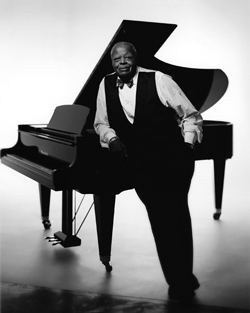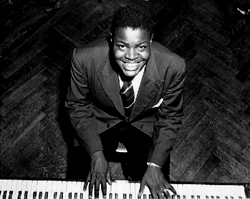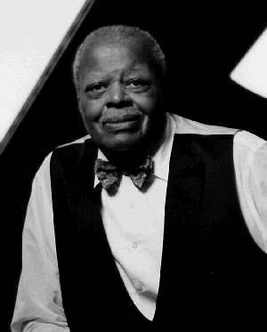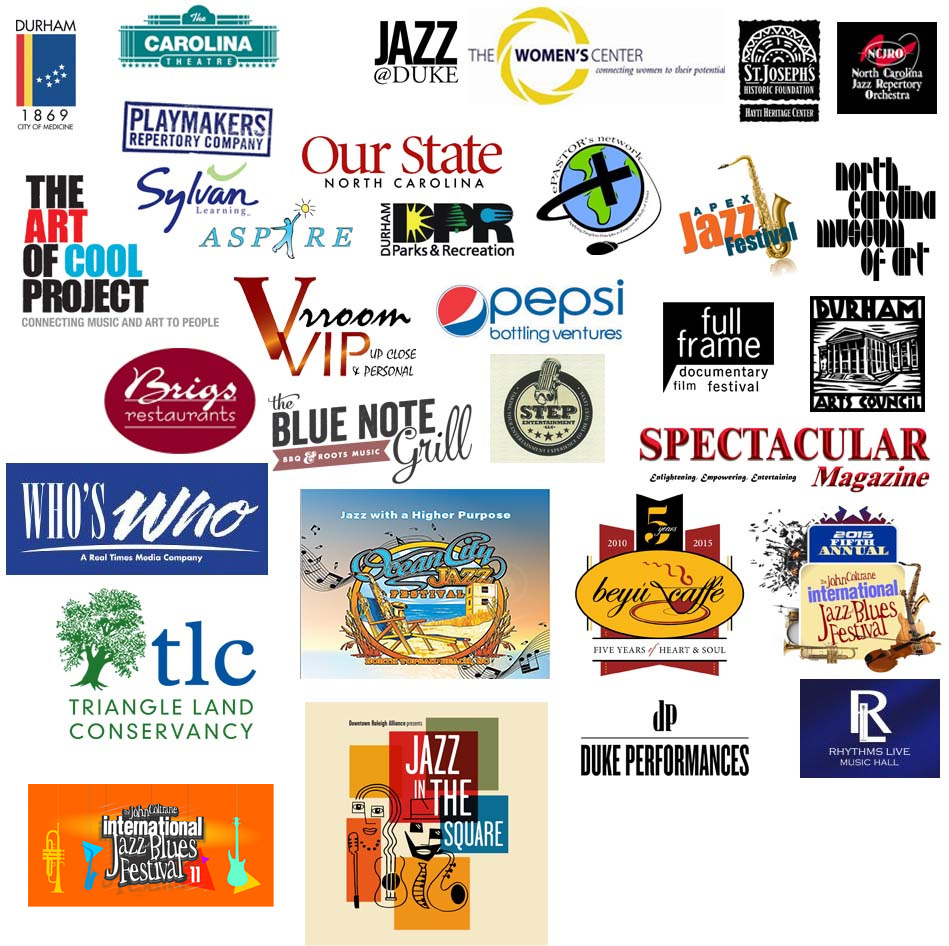Oscar Emmanuel Peterson
 Oscar Peterson was a Canadian jazz pianist and composer. He was called the “Maharaja of the keyboard” by Duke Ellington, “O.P.” by his friends, and was a member of jazz royalty. He released over 200 recordings, won seven Grammy Awards, and received other numerous awards and honors over the course of his career. He is considered to have been one of the greatest pianists of all time, who played thousands of live concerts to audiences worldwide in a career lasting more than 65 years. Oscar Peterson has entertained the world with his mastery and prowess over the piano for over 40 years. Born in a limestone house on Montreal’s Delisle Street on August 15, 1925, he was the fourth of five children to his parents, Daniel and Kathleen. All of the Peterson children (Fred, Daisy, Charles, Oscar and May) were introduced to music in a good way before any of them can remember. Their father, a porter with Canadian Pacific Railways who learned to play piano on his own while in the merchant marine, taught his children all he could until they achieved a certain proficiency. It was at this point, during his high school years, that Oscar came to study with an accomplished classical pianist, Hungarian Paul de Marky, who taught Oscar “technique and speedy fingers.” He also helped Oscar come to believe that he had something special to give to the music world.
Oscar Peterson was a Canadian jazz pianist and composer. He was called the “Maharaja of the keyboard” by Duke Ellington, “O.P.” by his friends, and was a member of jazz royalty. He released over 200 recordings, won seven Grammy Awards, and received other numerous awards and honors over the course of his career. He is considered to have been one of the greatest pianists of all time, who played thousands of live concerts to audiences worldwide in a career lasting more than 65 years. Oscar Peterson has entertained the world with his mastery and prowess over the piano for over 40 years. Born in a limestone house on Montreal’s Delisle Street on August 15, 1925, he was the fourth of five children to his parents, Daniel and Kathleen. All of the Peterson children (Fred, Daisy, Charles, Oscar and May) were introduced to music in a good way before any of them can remember. Their father, a porter with Canadian Pacific Railways who learned to play piano on his own while in the merchant marine, taught his children all he could until they achieved a certain proficiency. It was at this point, during his high school years, that Oscar came to study with an accomplished classical pianist, Hungarian Paul de Marky, who taught Oscar “technique and speedy fingers.” He also helped Oscar come to believe that he had something special to give to the music world.
As a child, Peterson also studied with Hungarian-born pianist Paul de Marky, a student of Istvan Thomán who was himself a pupil of Franz Liszt, so his training was predominantly based on classical piano. Meanwhile, he was captivated by traditional jazz and learned several ragtimes and especially the boogie-woogie. At that time Peterson was called “the Brown Bomber of the Boogie-Woogie.” At age nine Peterson played piano with control that impressed professional musicians. For many years his piano studies included four to six hours of practice daily. Only in his later years did he decrease his daily practice to just one or two hours. In 1940, at age fourteen, Peterson won the national music competition organized by the Canadian Broadcasting Corporation. After that victory, he dropped out of school and became a professional pianist working for a weekly radio show, and playing at hotels and music halls. In his last years of high school, Oscar played in a band called the Montreal High School Victory Serenaders with trumpeter Maynard Ferguson. He got permission to play the baby grand piano during the lunch hours and in his words this was “the best way to have a bunch of girls come down. I became the guy.” At 14 years of age, Oscar’s older sister Daisy got him to audition for a CBC (Canadian Broadcasting Corporation) national amateur contest which he went on to win. This opened the doors to performances on a weekly broadcast show, on a Montreal radio station, called Fifteen Minutes’ Piano Rambling and later performances on a national CBC broadcast called The Happy Gang. Finally, when algebra couldn’t banish musical arrangements, Oscar asked to drop out of high school. His father told him that he couldn’t “let him leave high school to be a jazz piano player. You have to be the best, there is no second best.”
trumpeter Maynard Ferguson. He got permission to play the baby grand piano during the lunch hours and in his words this was “the best way to have a bunch of girls come down. I became the guy.” At 14 years of age, Oscar’s older sister Daisy got him to audition for a CBC (Canadian Broadcasting Corporation) national amateur contest which he went on to win. This opened the doors to performances on a weekly broadcast show, on a Montreal radio station, called Fifteen Minutes’ Piano Rambling and later performances on a national CBC broadcast called The Happy Gang. Finally, when algebra couldn’t banish musical arrangements, Oscar asked to drop out of high school. His father told him that he couldn’t “let him leave high school to be a jazz piano player. You have to be the best, there is no second best.”
Some of the artists who influenced Oscar during the early years were Teddy Williams, Nat (King) Cole, James P. Johnson and the legendary Art Tatum, who many have tried to compare Oscar to in later years. In fact, one of Oscar’s first exposures to the musical talents of Art Tatum came early in his teen years when his father played an Art Tatum record to him and Oscar was so intimidated by what he heard that he didn’t touch the piano for over a month.
According to pianist/educator Mark Eisenman, some of Peterson’s best playing was as an understated accompanist to singer Ella Fitzgerald and trumpeter Roy Eldridge. Peterson wrote pieces for piano, for trio, for quartet and for big band. He also wrote several songs, and made recordings as a singer. Probably his best-known compositions are “Canadiana Suite” and “Hymn to Freedom,” the latter composed in the 1960s and inspired by the U.S. civil rights movement. Peterson taught piano and improvisation in Canada, mainly in Toronto. With associates, he started and headed the Advanced School of Contemporary Music in Toronto for five years during the 1960s, but it closed because concert touring called him and his associates away, and it did not have government funding. Later, he mentored the York University jazz program and was the Chancellor of the entire university for several years in the early 1990s. He also published his original jazz piano etudes for practice. However, he asked his students to study the music of Johann Sebastian Bach, especially the Well Tempered Clavier, the Goldberg Variations, and the The Art of Fugue, considering these piano pieces essential for every serious pianist. Pianists Benny Green and Oliver Jones were among his students.
After the stroke, Peterson recuperated for about two years. He gradually regained mobility and some control of his left hand. However, his virtuosity was never restored to the original level, and his playing after his stroke relied principally on his right hand. In 1995 he returned to public performances on a limited basis, and also made several live and studio recordings for Telarc. In 1997 he received a Grammy for Lifetime Achievement and an International Jazz Hall of Fame Award, another indication that Peterson continued to be regarded as one of the greatest jazz musicians ever to play. Canadian politician, friend, and amateur pianist Bob Rae contends that “a one-handed Oscar was better than just about anyone with two hands”. On 23 December 2007, Peterson died of renal failure at his home in Mississauga, Ontario. He left seven children, his fourth wife Kelly, and their daughter, Celine (born 1991).His work earned him seven Grammy awards over the years and he was elected to the Canadian Music Hall of Fame in 1978. He also belongs to the Juno Awards Hall of Fame and the Canadian Jazz and Blues Hall of Fame.

